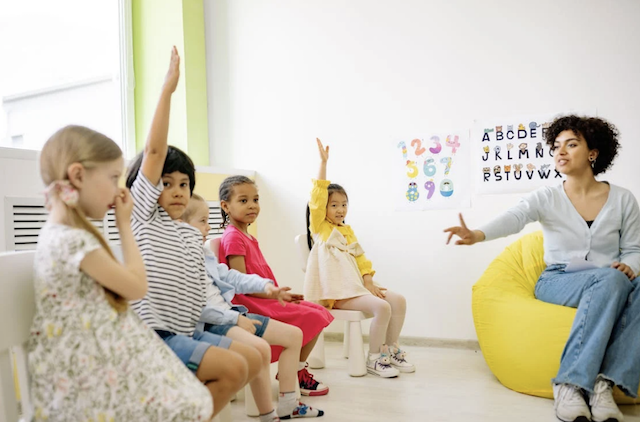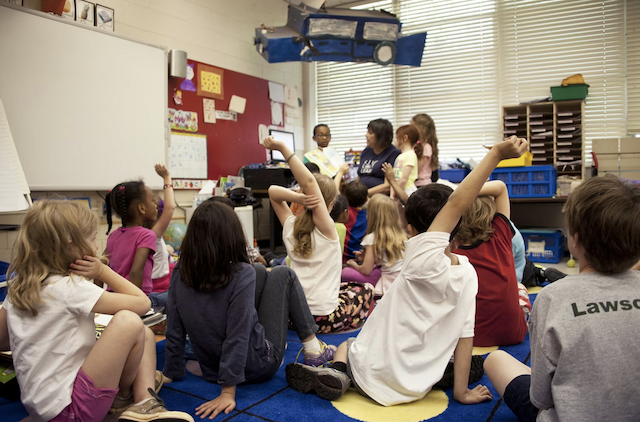Early education plays a pivotal role in shaping the foundation of your child’s development. From social skills to cognitive abilities, the experiences your child has in their formative years significantly influence their future success. Understanding the importance of early education helps you make informed decisions about how to best support your child’s growth and learning.
Cognitive Development
During the first few years of life, your child’s brain is rapidly developing, making early education critical for cognitive growth. Structured learning environments, as highlighted by Montessori day care programs, introduce concepts like numbers, letters, shapes, and colours, which form the building blocks of more complex thinking skills. Exposure to these fundamentals at an early age enhances your child’s ability to grasp more challenging subjects later on. Moreover, early education programs often incorporate problem-solving activities that encourage critical thinking, helping your child develop the mental agility needed for academic success.
- Enhanced Memory Retention: Early education programs frequently use repetition and practice to help your child improve their memory. This not only aids in retaining basic information like the alphabet or numbers but also strengthens your child’s ability to remember more complex instructions and concepts in the future.
- Development of Executive Function: Participating in early education fosters your child’s executive function skills, such as planning, organising, and multitasking. These skills are essential for managing both academic tasks and everyday challenges, preparing your child to handle complex situations with greater ease.
- Exposure to Diverse Learning Tools: Early education often incorporates a variety of learning tools such as puzzles, educational games, and interactive technologies. These tools not only make learning engaging but also cater to different learning styles, helping your child discover how they learn best and fostering a love for learning.
Language Development
The language-rich environment of early education settings is crucial for your child’s linguistic development. Engaging with teachers and peers in conversations, listening to stories, and participating in group discussions all contribute to a more extensive vocabulary and better communication skills. Parents should take advantage of a Toddler Homeschool Curriculum that brings structured learning into the home in a playful and engaging way. These programmes often include songs, stories, and hands-on activities that support language development while keeping little ones curious and involved.
Research shows that children exposed to rich language environments early on are more likely to excel in reading and writing as they grow older. The ability to express thoughts clearly and understand others’ language is fundamental to effective learning and social interaction.
- Enhancing Listening Skills: Early education places a strong emphasis on listening activities, such as story-time or teacher instructions. Developing good listening skills early on enhances your child’s ability to focus, follow directions, and absorb new information, which are all crucial for academic success.
- Encouraging Expressive Language: By participating in group discussions and one-on-one interactions, your child practices expressing their thoughts and feelings. This not only builds confidence in communication but also improves their ability to articulate ideas clearly and effectively, a skill that is invaluable throughout life.
- Fostering a Love for Reading: Exposure to books and storytelling in early education nurtures a love for reading in your child. This early engagement with literature boosts their imagination, comprehension, and overall literacy, setting a strong foundation for academic achievement.
Preparation for Future Learning
Early education serves as a bridge between home life and formal schooling, preparing your child for the structured learning environment of elementary school and beyond. By establishing routines, following instructions, and engaging in group activities, your child learns the discipline and focus needed for future academic endeavours. This preparation not only boosts your child’s confidence but also sets a positive tone for their entire educational journey, making them more likely to enjoy and succeed in school.
- Establishing Routines and Structure: Early education introduces your child to daily routines, such as regular meal times and scheduled learning activities. This consistency helps your child develop time-management skills and understand the importance of structure, which will be essential throughout their schooling.
- Familiarisation with Classroom Dynamics: Exposure to a classroom environment helps your child become comfortable with the formal school setting. This familiarity reduces anxiety when transitioning to elementary school, making it easier for your child to adapt to new teachers, peers, and expectations.
- Building Resilience and Independence: Early education encourages your child to take on small responsibilities, such as completing tasks or managing personal belongings. These experiences build resilience and independence, helping your child develop the confidence to tackle challenges and solve problems on their own.
Social and Emotional Skills
Early education also fosters the development of social and emotional skills, which are just as important as cognitive abilities. In a classroom setting, your child learns to interact with peers, share, take turns, and communicate effectively. These interactions teach your child how to manage emotions, resolve conflicts, and build relationships, skills that are essential throughout life. Additionally, early educators are trained to help children navigate their feelings and develop empathy, laying the groundwork for emotional intelligence, which is key to personal and professional success.
- Building a Sense of Community: Early education environments create a sense of belonging and community for your child. Feeling part of a group helps them develop trust and cooperation, fostering positive social behaviours that will benefit them in group settings throughout life.
- Understanding Diversity: Interacting with children from different backgrounds and with different abilities helps your child develop an appreciation for diversity. This exposure teaches your child the value of inclusivity and understanding, crucial traits in an increasingly globalised world.
- Developing Conflict Resolution Skills: Through guided interactions, early education helps your child learn how to handle disagreements and conflicts constructively. These skills are vital as your child grows older, helping them navigate complex social dynamics both in school and in personal relationships.
Cultivating Creativity and Imagination
Creativity and imagination are vital aspects of your child’s development, and early education provides a fertile ground for these qualities to flourish. Through art, music, storytelling, and imaginative play, your child is encouraged to explore their creativity, express themselves, and think outside the box. These creative experiences not only bring joy but also contribute to cognitive development, problem-solving skills, and emotional intelligence.

Investing in early education is one of the most impactful decisions you can make for your child’s future. The skills and knowledge gained during these formative years lay the groundwork for lifelong learning, emotional resilience, and social competence. By prioritising early education, you give your child the best possible start in life.




